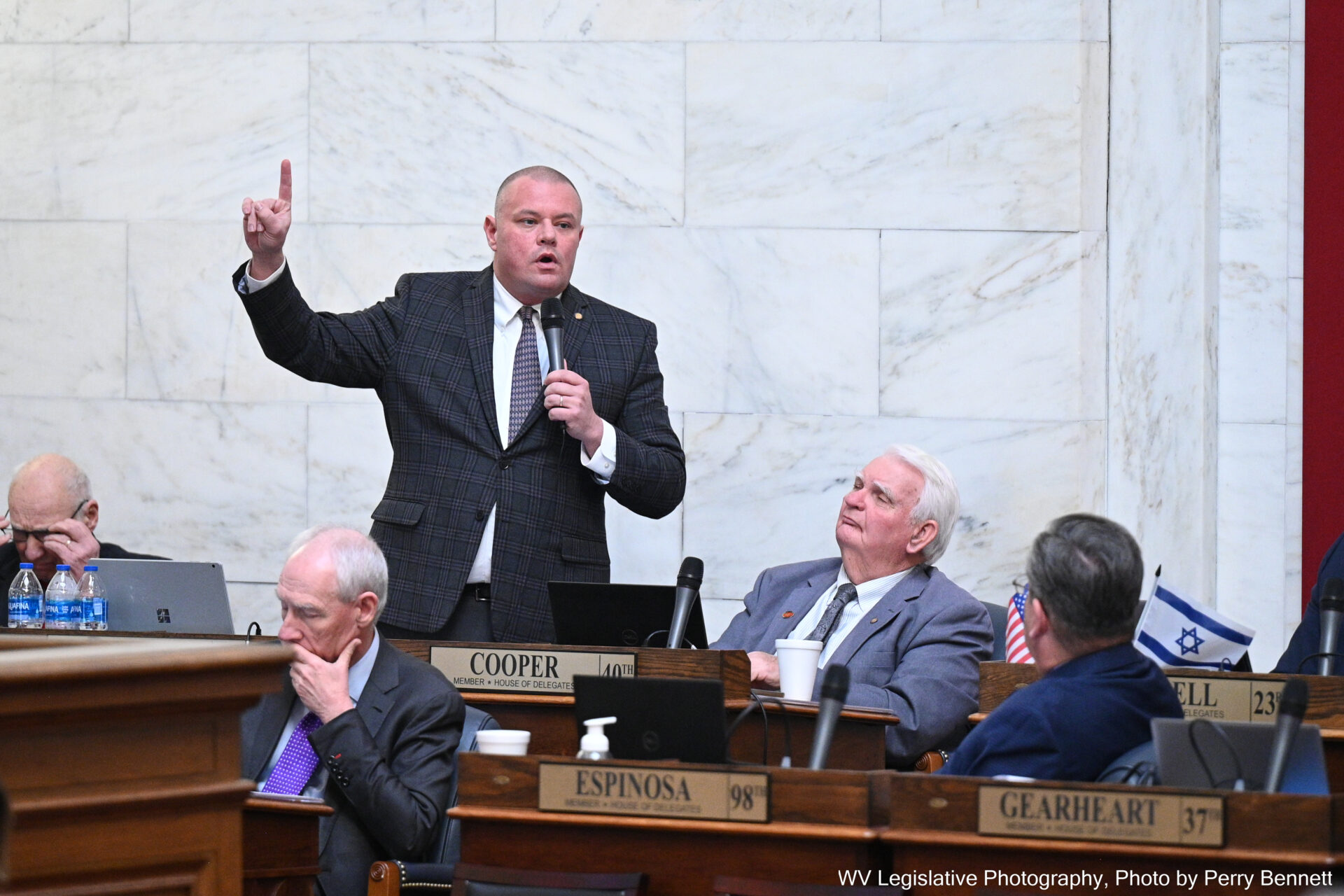A contentious proposal regarding schools, libraries and obscene material went to third reading in the House of Delegates Friday.
Right now, public and school libraries and museums have exemptions to West Virginia’s law against displaying or disseminating obscene material to minors. House Bill 4654 would remove those exemptions.
Del. Jeff Stevens, R-Marshall, and a public school teacher, said in floor debate that the bill allows him to better protect his students.
“For students’ electronic devices, we have GoGuardian to protect them from obscene material,” Stevens said. “We have the FCC that protects children from seeing obscene material on TV. This bill gave our students and children of the community the same protection they receive from GoGuardian and from the FCC.”
GoGuardian is a program that gives K-12 teachers tools from digital guardrails to student safety support to create safe student learning.
The bill’s sponsor, Del. Brandon Steele, R-Raleigh, said the bill does not ban books but protects children from being exposed to pornography.
“I’m here to protect our young people,” Steele said. “And make sure that they are not put in a vulnerable position where they are presented with pure pornography, and an effort to groom them and prepare them for a potential sexual abuse or sexual assault.”
Del. Evan Hansen, D-Monongalia, said there are already local community standards in place to determine what’s obscene.
“There’s a school board, a locally elected school board that oversees our schools,” Hansen said. “And our libraries apply local community standards when they make decisions about what books to put on the shelves.”
The bill passed along party lines, 85-12, and now goes to the Senate. West Virginia’s obscenity laws have possible punishments of fines up to $25,000 and up to five years imprisonment.
